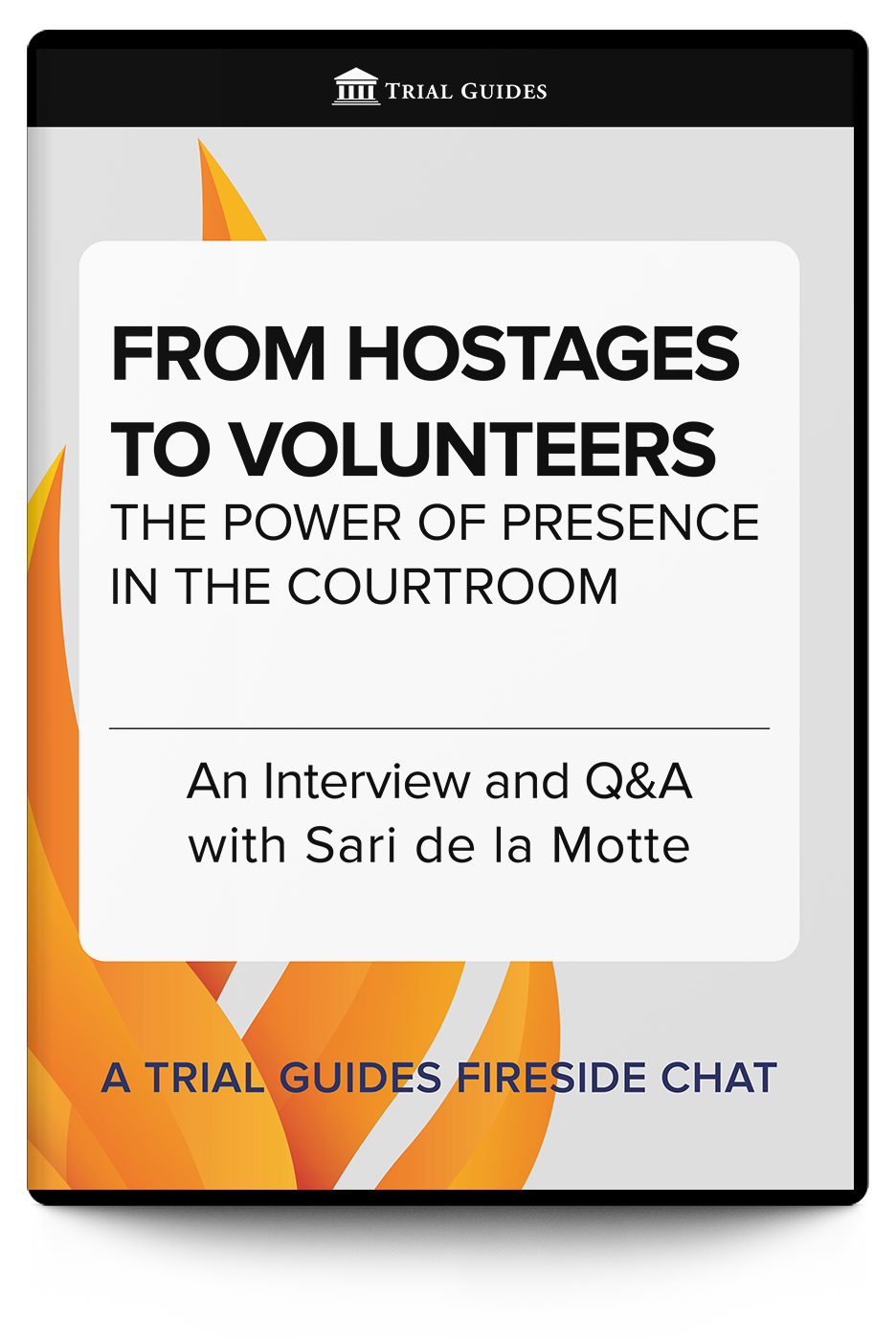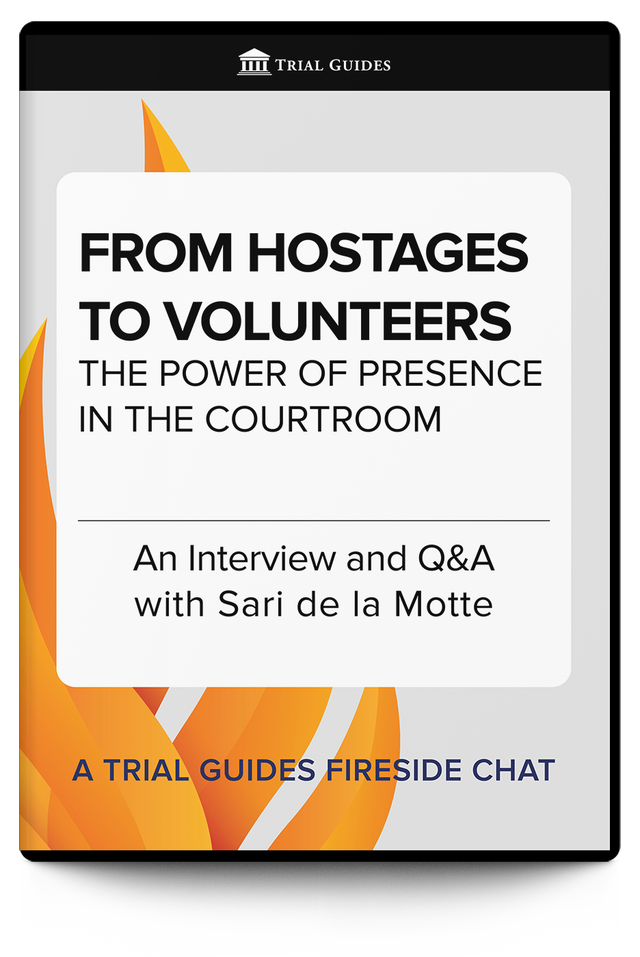Description
Description
In this interview, Sari de la Motte, nationally acclaimed trial consultant and the author of From Hostage to Hero, shares her proven strategies on using nonverbal communication techniques in the courtroom. All communication either addresses the issue at hand or nurtures the potential relationship. Rather than trying to find a personal connection with the jurors, de la Motte theorizes that if you immediately communicate to jurors why they are here and what the issue is, they will become more receptive and open-minded.
De la Motte shares sample questions and other ways to conduct voir dire that avoid unnecessarily taking up your and the jurors’ time. She also uses examples from past clients who adjusted their body language mid-trial to increase their advocacy and improve their presence in the courtroom. If you can confidently and competently present yourself as a leader, the jurors are more likely to follow you and get on board to fight for your cause. De la Motte explains the three crucial steps to this process:
- Create safety for the group
- Assume leadership
- Empower them to fight
Following the interview, de la Motte takes on listeners’ questions:
- Are there variations in nonverbal authoritative gestures for women?
- How to maintain a balance between authoritative and hostile
- Training for good breathing
- How to make a good first impression on the jury with nonverbal communication
- Advice for forming a group when there is individual voir dire
- Debating the effectiveness of the “straight to the facts” voir dire approach
- Applying nonverbal techniques to bench trials
- Does using humor help or hurt your ability to build a relationship with a jury?
- Is it possible to teach someone how to be themselves?
- How to avoid coming off as too polished without dumbing yourself down
- What body language to present when the jury enters the courtroom
- Should you ask the jury about their hobbies?
- When working in conservative jurisdictions, how do you soften the issue to make the jurors more receptive?
- Could holding a prop in your hand hurt the jury’s perception of you?
- How to apply these principles when attorney-led voir dire is not allowed
- Is it okay to use panel numbers to identify jurors?
- Rule of expectations
Being purposeful with your mind, body, and words can be vital to succeeding in trial. Practicing these techniques and being mindful of your presence ensures a seamless execution when you walk into the courtroom.
Please Note: Audiobooks are accessed through the “Trial Guides Bookshelf” in your account page. Or through the “Trial Guides App for Lawyers” available from Google Play or the Apple App Store.
Click here for further information on Audiobooks
*This interview was originally offered to customers as part of our Trial Guides LIVE Fireside Chat series. The content has been remastered and edited for brevity and clarity.
Author
Author
Details
Details
Audio Digital Download: 88 minutes; 1st edition (2021)
Publisher: Trial Guides, LLC




